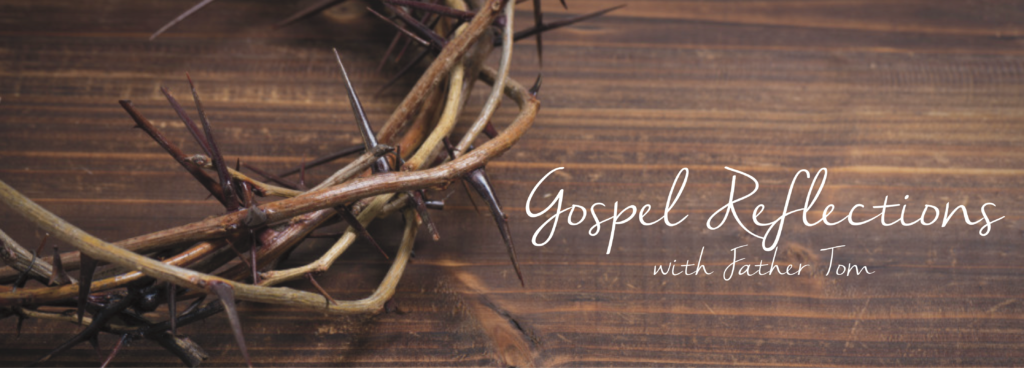
It is necessary to be alone sometimes, for the soul requires solitude in order to maintain its individuality. But we couldn’t live like that. We’d go mad. The fact is: we are remarkably dependent on one another. We need other people in our lives – for support, affirmation, encouragement, companionship. They nourish and sustain us in a hundred different ways. And of course we nourish them also.
Today people are schooled in individualism with the result that they find community difficult. There is a lot of loneliness in the world today. Many people are crying out for a friend, for a companion, for a sense of belonging.
The word ‘companion’ is a lovely word. It comes from, two Latin words: cum which means with, and panis which means bread. So a ‘companion’ literally means someone with whom I share bread. It’s not everyone that you enjoy a meal with. Not everyone that you invite in for a cup of tea. There has to be a bond. And that bond is deepened by the sharing of food and drink. When people invite us to their table they offer us more than food. They offer us trust, welcome and friendship. We feel honored. The talk is as much a part of the fare as the food. Afterwards we feel nourished, not only in body, but also in heart and spirit.
The Eucharist is the meal that we share in the Lord’s memory and at his command. By inviting us to partake of the sacred food of the Eucharist, Jesus makes us his companions and friends. And in doing so we ought to become companions and friends to one another.
We need Christ – that’s obvious. But we also need one another. To be a believer, or just a spiritual person, in today’s world can be a lonely business. Here is where the community comes in. We are a community of believers whose common faith strengthens the faith of each individual.
The first Christians supported one another. They forgave each other’s offenses, shared their possessions, and fostered the spirit of community. Sharing creates a bond, and bonding leads to sharing. The Eucharist was at the centre of everything. It was this that bound them together and enabled them to offer a loving service to one another.
Recalling the words of Jesus, the Catholic Church professes that, in the celebration of the Eucharist, bread and wine become the Body and Blood of Jesus Christ through the power of the Holy Spirit and the instrumentality of the priest. Jesus said: “I am the living bread that came down from heaven; whoever eats this bread will live forever; and the bread that I will give is my flesh for the life of the world. . . . For my flesh is true food, and my blood is true drink”. The whole Christ is truly present, body, blood, soul, and divinity, under the appearances of bread and wine—the glorified Christ who rose from the dead after dying for our sins. This is what the Church means when she speaks of the “Real Presence” of Christ in the Eucharist. The risen Christ is present to his Church in many ways, but most especially through the sacrament of his Body and Blood. I give thanks to God in a special way for that most incredible gift of his Real Presence in the Eucharist and for the fact that we are back together as a community.
